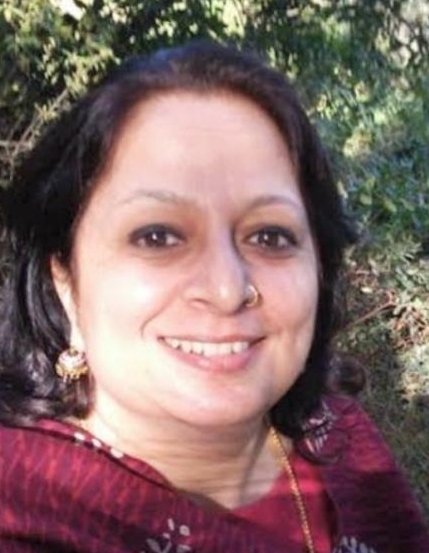Education is the manifestation of the perfection already in man” —Swami Vivekananda.
This quote was originally part of a letter written to Singaravelu Mudaliyar (Kidi) from Chicago, United States, dated 3 March 1894.
Every time I interact with students from different economic, and intellectual backgrounds or cultures: one thing comes to the fore loud and clear: Every child is inherently endowed with an urge to learn, a curiosity that is brimming over, till adults wipe it clean with mismanagement and archaic or boring practices.
The rapport that can be built in just a few minutes of using the right approach can vary from mentor to mentor, but, what matters the most is the skill to arouse the latent talent in each child, create a platform conducive for expression and manifestation and being the conduit for innovation and communication.
This and a lot more was experienced recently in several interactions with students of different age groups, teachers as well and parents through the training seminars that I conduct.
The best of these interactions was with the students of Veer Savarkar School, Gorwa under the aegis of the VNM Foundation’s Pehal project on mental health and well-being.
My role was to introduce the importance of developing the ability to concentrate and focus on a task at hand or enhance the ability if one already has it. It also revolved around ensuring that children from grades five to eight can correlate their existing knowledge with their daily life as well as their mental well-being and their knack for refining and applying the very same knowledge.
A few technical insights are shared here for the convenience of those who are passionate about bringing about a change:
WHAT IS LEARNING:
When one talks of learning from a layperson’s point of view, it seems very simple, as in, it could happen automatically by observation and internalization or on the contrary repeated attempts to learn something or anything may end in vain.
So, the perpetual question that has intrigued mankind from the beginning of time is a simple yet intricate one at the same time: How does learning happen or occur?
In my very personal opinion, as a mentor, I am convinced that learning can happen anytime, anywhere, and anyhow. This is not a whimsical statement but one that I have experienced, experimented with, and implemented in my journey as a communicator, and educator, over some time, with a diverse set of students in different environments.
OARS TECHNIQUE :
A technique that has been created by me during my stint in teaching creative writing is the concept of OARS which works every time with the youngest and oldest of the participants.
OARS is an acronym that expands into:
OBSERVE
ABSORB
REARRANGE/REHASH
SHOW/SHOWCASE/SPEAK
© Copyright Suverchala Kashyap
PROCESS OF LEARNING: The process of learning is continuous and starts right from the time of birth of an individual and continues till death.
According to the field of psychology, for learning to occur, two things are important:
- The presence of a stimulus in the environment and
- The innate dispositions like emotional and
instinctual dispositions.
A person keeps on learning across all the stages of life, by constructing or reconstructing experiences under the influence of emotional and instinctual dispositions.
Psychologists in general define Learning as relatively permanent behavioural modifications which take place as a result of experience. This definition of learning stresses three important elements of learning:
▪ Learning involves a behavioural change which can be better or worse.
▪ This behavioural change should take place as a result of practice and experience. Changes resulting from maturity or growth cannot be considered as learning
▪ This behavioural change must be relatively
permanent and last for a relatively long time enough.
John B. Watson is one of the first thinkers who has proven that behavioural changes occur as a result of learning. Watson is believed to be the founder of the Behavioural school of thought, which gained its prominence or acceptability around the first half of the 20th century.
The key characteristics of the learning process are:
- When described in the simplest possible manner, learning is described as an experience acquisition process.
- In the complex form, learning can be described as the process of acquisition, retention and modification of experience.
- It re-establishes the relationship between a stimulus and response.
- It is a method of problem-solving and is concerned with making adjustments to the environment.
- It involves all those gamut of activities which may have a relatively permanent effect on the individual.
- The process of learning is concerned about experience acquisition, retention of experiences, and experience development in a step-by-step manner, synthesis of both old and new experiences for creating a new pattern.
- Learning is concerned with cognitive, conative and affective aspects. The knowledge acquisition process is cognitive, any change in emotions is affective and conative is the acquisition of new habits or skills.
CONCLUSIVE EVIDENCE:
- With a background in the fields of both communication and education the aspect that comes to the fore in my experience, is the need for teachers to perpetually upgrade themselves, chisel and hone their talents, or adopt newer ways.
- Learning is lifelong and continuous and one size fits all is a fallacy we need to shake off.
- Customise teaching learning to the needs of the learner.
- Techniques should be flexible not hazy and must address the keenness to learn.
- Learning profiles of students must be taken into account and the aspect that they vary in many ways must be factored into the process.
- There must be a balance between regimentation and freedom of choice…
Suverchala Kashyap
(Founder Parivartan SK’s Transformational Hub)


















More Stories
May- Mental Health awareness Month
Exploring the Elasticity of Your Brain: Understanding Neuroplasticity
The Impact of Social Media on Mental Health: Finding Balance